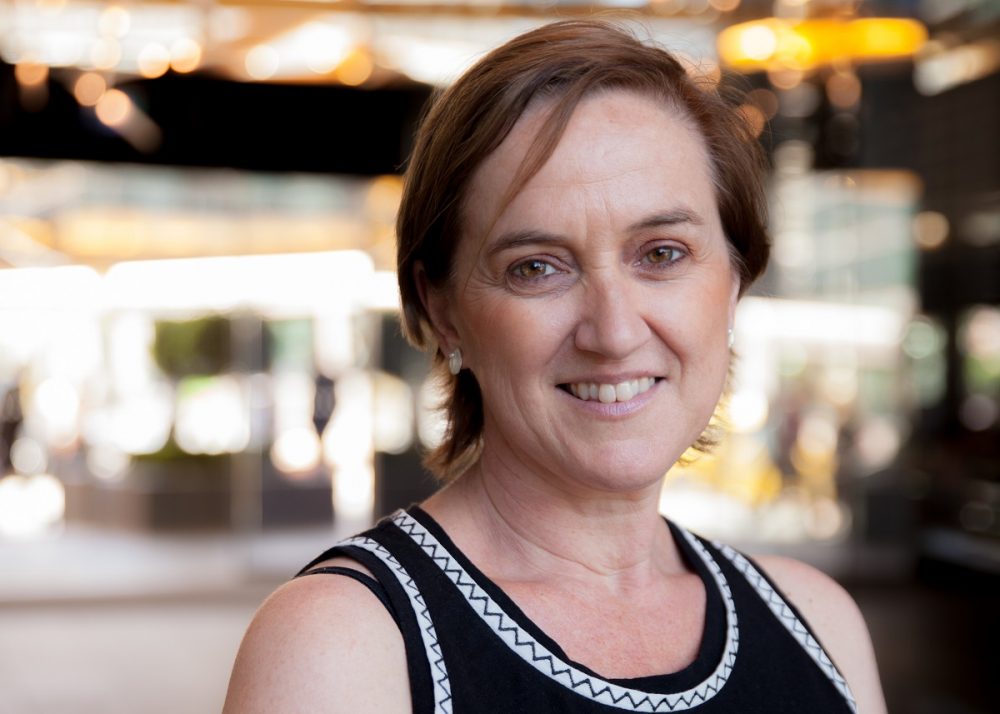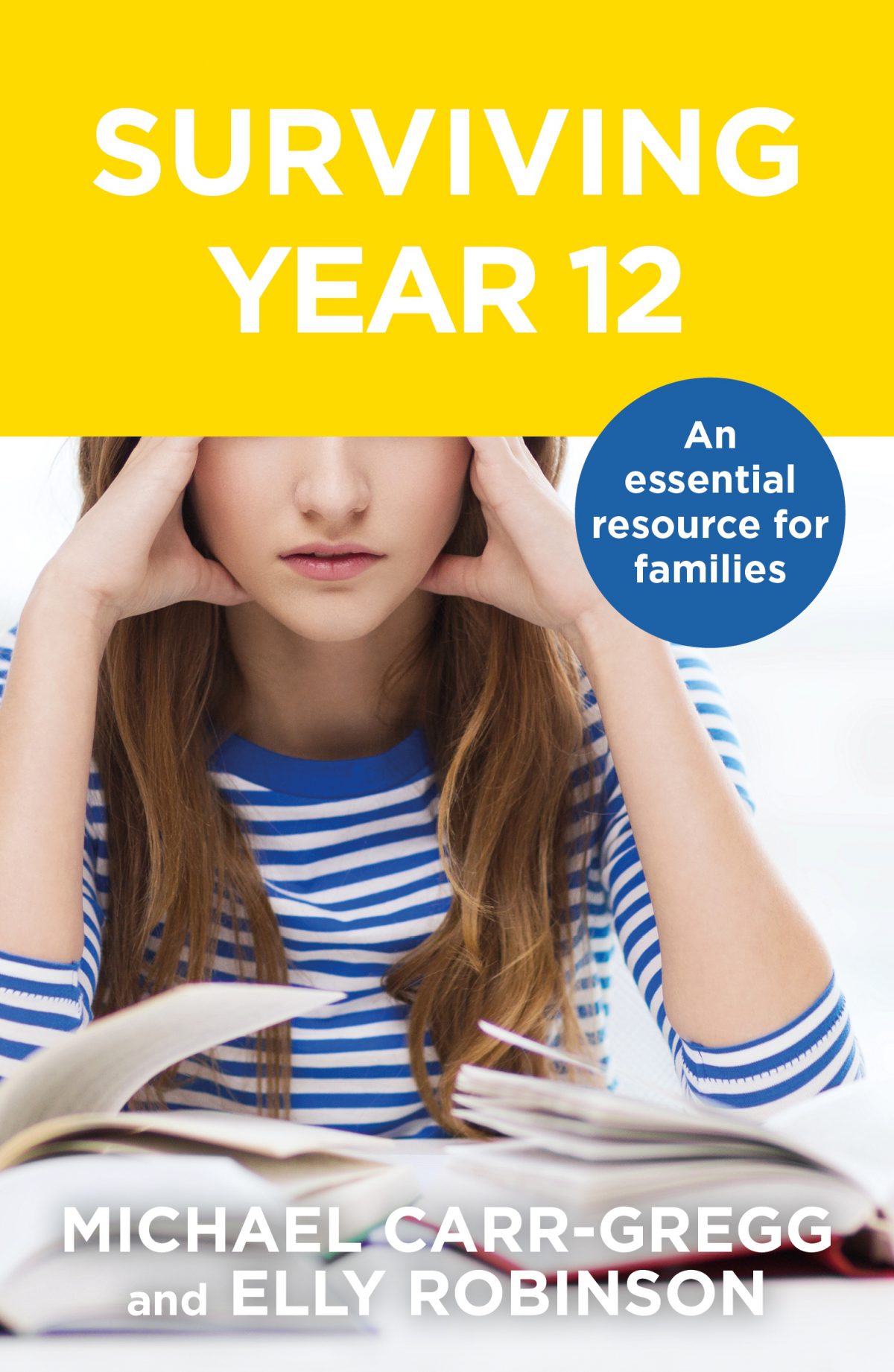
Is your teen embarking on the VCE? An update of the book Surviving Year 12 by Michael Carr-Gregg and Elly Robinson is full of useful advice so students and their families can survive and thrive.
We talk to Elly Robinson, co-author and mother of a teen, about how best to support your teenager during Year 12.

Can parents review their approach?
Many parents arrive at the start of Year 12 with deeply ingrained styles of parenting. Is it possible for parents to step back and review their approach when they have a teen doing Year 12? Can you teach an old parent new tricks?
Children need care and support to grow at any age, and parents can contribute by having a solid understanding of child and adolescent development and how they can adapt their parenting to meet their child’s needs over time. It’s worth thinking of Year 12 as the final stepping stone to adult life. This means it’s not just about what ATAR the student gets, which is only relevant to university entry and will be important for a millisecond of the teen’s life. Year 12 is also about time management, responsibility, problem solving and learning about the relationship between effort and reward, all skills which will set young people up well for the challenges of adult life. Parents can help by providing positive reinforcement and keeping the year in perspective, and recognising that the student is experiencing a lot of pressure already, from teachers and peers but not least from themselves. It’s time to recalibrate the parenting role to a more equal, supportive and adult relationship.

What's the Third Transition for teenagers?
The book examines what’s described as the Third Transition for teens moving into adulthood, underlining that Year 12 isn’t just about academic results. Can you explain what’s involved in the Third Transition, and how parents can support their teen during this?
As a society we talk a lot about the transition into primary school, and to a lesser extent the transition from primary to secondary school. There’s much less of a focus on the ‘third transition’ from school into work or further study. Young people are moving from what is often a fairly sheltered school life to a broader adult world. Many young people find university life challenging, with as many as one third of students dropping out of study in the first year. ‘Jobs for life’ are a thing of the past and many jobs are disappearing or being altered by technology. Young people tend to stay at home for longer these days, meaning that parents are now sharing the house with another adult. It’s important to communicate and negotiate a new set of expectations and conditions, which should focus on values/morals (e.g. treating others in the house with respect, not abusing alcohol or drugs) and about how to live with each other (e.g. who is doing chores and when? Is your young adult expected to contact you if they stay out all night?)
Three different parenting styles
Can you talk about the three broad approaches you identify as being taken by parents during Year 12 – Shock and Awe, Chilled but Vigilant and Laissez Faire?
A ‘Shock and Awe’ approach tends to focus on reminding the student daily that Year 12 is the Mt Everest of secondary school and it requires huge, all-out effort and commitment. It often includes comparisons, either to ‘deadbeat’ or ‘superstar’ relatives. Laissez Faire parents, in comparison, tend to be largely unaware their child is doing Year 12, don’t talk about or show interest in it and place no pressure on their teen. We recommend a ‘chllled but vigilant’ approach as a compromise, which is captured in the message to teens that Year 12 is important but it is not the most important year of a child’s life. Life will still go on, no matter what their ATAR is. Key messages that ‘chilled but vigilant’ parents provide are supportive and encouraging, and lines of communication are always open – it’s about being your child’s cheerleader. Our book talks about the importance of following your child’s lead about what sources of support they need in Year 12, which may change over the course of the year.
The media hype around Year 12
You examine the role the media plays in building up the hype about Year 12 – league tables, highlighting super high achievers. What damage can this kind of coverage do?
Media coverage tends to focus only on results, particularly ATAR scores, as the most important factor in ‘success’ in Year 12. Often it involves a comparison of all schools’ end-of-year results. This is effectively meaningless, as not all schools start on a level playing field. Success in this case is only measured by numbers, and there is so much in the life of a school and its students that doesn’t lend itself to quantitative measures. Schools should be providing an environment where well-rounded and self-confident citizens are developed, not just human calculators. In the case of high achievers, media stories focus exclusively on the outliers of the Year 12 bell curve, yet we tend to parade these results under the noses of our children, whether they are capable of this or not. It can lead to unrealistic expectations, stress and pressure that will be counterproductive.
Is Year 12 right for your teen?
You explore an option that few parents consider – whether Year 12 is right for their child. Can you explain the kind of things that should be considered?
An Australian Gallop Poll from 2015 showed us that by the time students reach Year 12, only half of them are engaged in school, and one in eight felt actively discouraged. If that was the basis for a marketing campaign for Year 12, it would fail dismally. There are three main areas to explore in determining whether Year 12 is a good option for your child – psychological development, temperament and personality. If your child has always shown a strong interest in a particular vocation, or if they are not sure what they want to do but are fine about it, then there’s not much to worry about. On the other hand, many young people are expected to do what their parents want them to do (including completing Year 12) or don’t know what they want to do and feel bad, confused and guilt ridden about it. These are the young people most at risk of mental health problems such as depression and anxiety. Options may be to not do Year 12, taking time off before Year 12, doing an apprenticeship or traineeship, or splitting Year 12 over two years. Listen to what they want to do, then support them to pursue this option.
Focus on wellbeing
You have you own teen, who will one day be doing Year 12. How do you think you will go as a Year 12 parent?
Hopefully I’ll be practicing what I preach! The most important thing to me as a parent is my child’s wellbeing – without that, nothing else is going to matter, and it’s far more important than a number. I’ll be listening, providing support when needed, cooking healthy meals and maintaining a steady flow of tea cups. It’s also important to be aware of the parent gossip mill when it comes to comparisons of your child’s achievements. Success comes in many forms, and I’m conscious of understanding what will mean success for my child and supporting this regardless of other people’s expectations.
Surviving Year 12, by Michael Carr-Gregg and Elly Robinson, is published by Penguin Random House. RRP $22.99.
Subscribe


